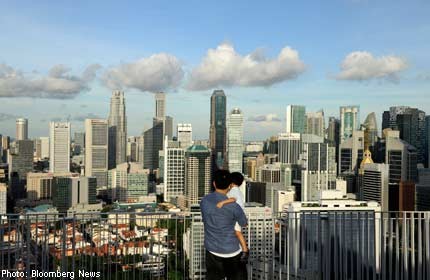Individual responsibility versus mob rule in Asia 101


I like to tell friends who visit Singapore that this city is Asia 101. A gentle introduction to a host of cultures which, for many, conjure up images of the exotic.
In a single day, you can walk through Chinatown, up North Bridge Road to Peninsula Plaza, take a bend around Golden Mile Complex, stroll through Arab Street and circle back to Little India, all without having to confront the political and socio-economic stresses that plague the home countries of these cultural microcosms.
Protests, poverty, crime, ethnic conflict and riots are not words most would associate with Singapore.
Indeed, I joined the rest of Singapore in total incredulity when I saw people posting on social media that there was a riot going on in Little India only to be completely gobsmacked when I found out it was happening right below the HDB flat where I live.
I returned home worried, amid the sounds of sirens and a weird mix of uneasy tension and reassuring calm as I walked past the usual array of characters that one can find on Sundays in this neighbourhood: drunk migrant workers blissfully passed out in the corners, uncles playing checkers on a bench over hawker food and beer, makciks chatting away while carrying groceries, and slightly less drunk migrant workers calling home on their old Nokias. There was little alarm even a block away from the carnage.
Only after I got past the police blockade along Race Course Road did I see the aftermath. Firemen were hosing down a pile of metal that used to be a vehicle, police cars were flipped on their sides, patrols were circling the area and an exhausted young policeman was trudging along, clearly having had enough for a day.
It is a testament to Singaporean efficiency that by about 11pm, the only people who still seemed to be distressed were those on social media who were being notified of the whole affair through short bursts of texts and blurry photos.
As expected, there were a few outcries against foreigners, but most were trying their level-headed best to denounce offensive behaviour and to pre-empt any emotional outrage from other netizens.
I come from Myanmar, a country that, until recently at least, has been more familiar with the angry mobs on the street than the mobs on the Internet. I have never been part of a protest or riot before but I have heard from those who participated in them.
I am proud to know some folks who have peacefully protested while calling for democratic reform, and others who I am less proud of, in the case of the mobs that were responsible for the recent ethnic conflicts in Myanmar. They all tell me of the same feeling that propelled them to take part, that they were beside themselves, overcome with a sense that they could not have done anything else in that moment.
Try striking up a conversation with a typical Bangladeshi, Indian or Myanmar migrant worker on the street. Most are incredibly polite to the point of being demure. They are all too aware that they are in a foreign land and that they must play by a rulebook that literally was not written in a language they would understand. Their rule of thumb is to play it safe. They have already risked everything to go overseas, and they have too much to lose.
The alienating forces that keep people in their shell of political correctness and civility are the same forces that trigger violence. When the disenfranchised are confronted with something that violates their already narrowed turf, like the death of one of their own, the pent-up anger congeals into a mob.
This line of reasoning applies both to foreign workers who feel disenfranchised in a foreign land and Singaporeans who feel their livelihoods are being eroded away by waves of immigrants. I have been living in Singapore, on and off, since the 1990s, but I am still a foreigner on a work pass. As such, I sympathise with both parties.
Just as the safety of the mob does not exempt one from individual responsibility - those rioters will rightly pay for their criminal acts - the safety of populist rhetoric does not relieve one from being a responsible citizen of a cosmopolitan city-state. After all, Asia 101 is a caricature we draw up to amuse tourists. Those of us who call Singapore our home, permanent or otherwise, need to step up towards realising and appreciating its complications and subtleties.
views@singapolitics.sg
The writer, who teaches physics and economics at an international school here, is a Myanmar citizen who has lived in Singapore since the 1990s.
This article was first published on www.singapolitics.sg
Check out www.singapolitics.sg for more views and news

Get a copy of The Straits Times or go to straitstimes.com for more stories.

Go to Singapolitics for more stories.